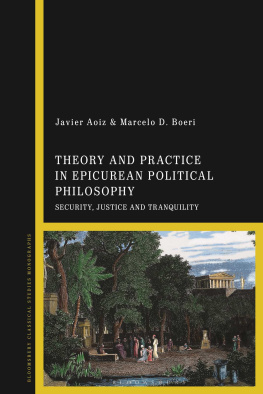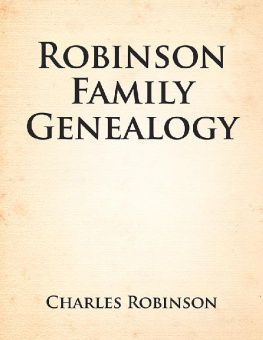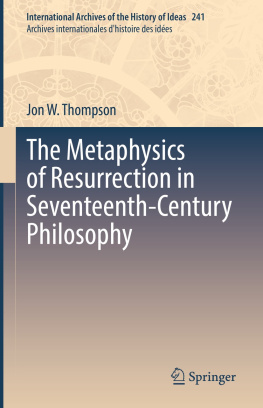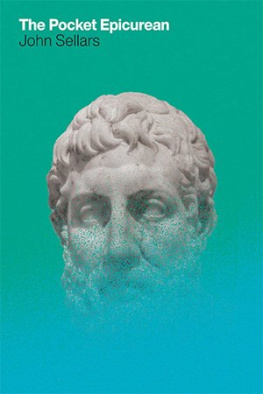NINON DE LENCLOS
LIFE AND LETTERS
INTRODUCTION
The inner life of the most remarkable woman that ever lived is here presented to American readers for the first time. Ninon, or Mademoiselle de lEnclos, as she was known, was the most beautiful woman of the seventeenth century. For seventy years she held undisputed sway over the hearts of the most distinguished men of France; queens, princes, noblemen, renowned warriors, statesmen, writers, and scientists bowing before her shrine and doing her homage, even Louis XIV., when she was eighty-five years of age, declaring that she was the marvel of his reign.
How she preserved her extraordinary beauty to so great an age, and attracted to her side the greatest and most brilliant men of the century, is told in her biography, which has been entirely re-written, and new facts and incidents added that do not appear in the French compilations.
Her celebrated Letters to the Marquis de Svign, newly translated, and appearing for the first time in the United States, constitute the most remarkable pathology of the female heart, its motives, objects, and secret aspirations, ever penned. With unsparing hand she unmasks the human heart and unveils the most carefully hidden mysteries of femininity, and every one who reads these letters will see herself depicted as in a mirror.
At an early age she perceived the inequalities between the sexes, and refused to submit to the injustice of an unfair distribution of human qualities. After due deliberation, she suddenly announced to her friends: I notice that the most frivolous things are charged up to the account of women, and that men have reserved to themselves the right to all the essential qualities; from this moment I will be a man. From that timeshe was twenty years of ageuntil her death, seventy years later, she maintained the character assumed by her, exercised all the rights and privileges claimed by the male sex, and created for herself, as the distinguished Abb de Chateauneauf says, a place in the ranks of illustrious men, while preserving all the grace of her own sex.
CHAPTER I
Ninon de lEnclos as a Standard
TO write the biography of so remarkable a woman as Ninon de lEnclos is to incur the animadversions of those who stand upon the dogma, that whoso violates one of the Ten Commandments is guilty of violating them all, particularly when one of the ten is conventionally selected as the essential precept and the most important to be observed. It is purely a matter of predilection or fancy, perhaps training and environment may have something to do with it, though judgment is wanting, but many will have it so, and hence, they arrive at the opinion that the end of the controversy has been reached.
Fortunately for the common sense of mankind, there are others who repudiate this rigid rule and excuse for human conduct; who refuse to accept as a pattern of morality, the Sabbath breaker, tyrant, oppressor of the poor, the grasping money maker, or charity monger, even though his personal chastity may entitle him to canonization. These insist that although Ninon de lEnclos may have persistently transgressed one of the precepts of the Decalogue, she is entitled to great consideration because of her faithful observance of the others, not only in their letter but in their spirit, and that her life contains much that is serviceable to humanity, in many more ways than if she had studiously preserved her personal purity to the sacrifice of other qualities, which are of as equal importance as virtues, and as essential to be observed.
Another difficulty in the way of establishing her as a model of any kind, on account of her deliberate violations of the sixth precept of the Decalogue, is the fact that she was not of noble birth, held no official position in the government of France, either during the regency or under the reign of Louis XIII, but was a private person, retiring in her habits, faithful in her liaisons and friendships, delicate and refined in her manners and conversations, and eagerly sought for her wisdom, philosophy, and intellectual ability.
Had she been a Semiramis, a Messalina, an Agrippina, a Catherine II, or even a Lady Hamilton, the glamor of her exalted political position might have covered up a multitude of gross, vulgar practices, cruelties, barbarities, oppressions, crimes, and acts of misgovernment, and have concealed her spiritual deformity beneath the grandeur of her splendid public vices and irregularities. The mantle of royalty and nobility, like dipsomania, excuses a multitude of sins, hypocrisy, and injustice, and inclines the world to overlook, disregard, or even condone, what in them is considered small vices, eccentricities of genius, but which in a private person are magnified into mountains of viciousness, and call forth an army of well meaning but inconsistent people to reform them by brute force.
It is time to interpose an impasse to the further spread of this misapprehension of the nature and consequences of human acts, and to demonstrate the possibility, in humble walks of life, of virtues worth cultivating, and to erect models out of those who, while they may be derelict in their ethical duties, are still worthy of being imitated in other respects. Our standards and patterns of morality are so high as to be unattainable, not in the details of the practice of virtue, but in the personnel of the model. Royal and noble blood permeated with the odor of sanctity; virtuous statesmanship, or proud political position attained through the rigid observance of the ethical rules of personal purity, are nothing to the rank and file, the polloi, who can never hope to reach those elevations in this world; as well expatiate upon the virtues of Croesus to a man who will never go beyond his days wages, or expect the homeless to become ecstatic over the magnificence of Nabuchodonosors Babylonian palace. Such extremes possess no influence over the ordinary mind, they are the mere vanities of the conceited, the mistakes of moralists.
The history of Ninon de lEnclos stands out from the pages of history as a pre-eminent character, before which all others are stale, whatever their pretensions through position and grandeur, notwithstanding that one great quality so much admired in womenwomanly puritywas entirely wanting in her conduct through life.
While no apology can be effectual to relieve her memory from that one stigma, the other virtues connected with it, and which she possessed in superabundance, deserve a close study, inasmuch as the trend of modern society is in the direction of the philosophical principles and precepts, which justified her in pursuing the course of life she preferred to all others. She was an ardent disciple of the Epicurean philosophy, but in her adhesion to its precepts, she added that altruistic unselfishness so much insisted upon at the present day.

















